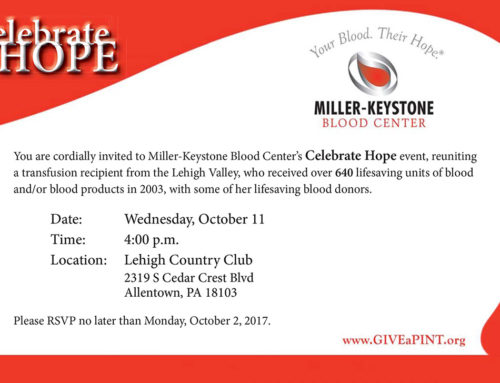
By Erin D’Amelio
Volunteer tourism wasn’t initially on my radar while I tried to decide how to best ease my melancholy at leaving SMK PGAS during my two and a half weeks before I returned to America. Though the idea is certainly appealing, it didn’t naturally pop up as an option until I began looking at hostels I could stay in at Tioman Island, noted by Time magazine as one of the most beautiful islands in the world. I had only decided to visit the island with my time off, but this vacation took a pleasant turn when I began searching for hostels. Either the other places weren’t online, or fate decided for me, for all I found was this unique hostel called the Juara Turtle Project.
This hostel isn’t so much a hostel as it is a conservation facility. It focuses on the endangered sea turtles of Malaysia, educating the public and caring for turtle nests. JTP asks more from its occupants than a normal backpackers’ haven: you become a volunteer who helps out with tasks like cleaning the main areas, giving Turtle Talks, and, most exciting, re-nesting and releasing baby turtles. But what is far more important is the attitude at JTP: they consider themselves unsuccessful. Despite the growing percentage of turtles hatched, released, and returning to Tioman, the existence and need of these efforts in and of themselves are problems because they indicate that the sea turtles are still in danger. Scientists suggest that at the current rate of decline in sea turtle populations, these gentle creatures that have survived for hundreds of millions of years before only have less than 100 until extinction. Many of the threats that have accelerated this deadline are man made: turtles get caught in fishing nets, many communities collect and eat the eggs, and shells are often used in jewelry, among many other reasons.
Thus only when JTP isn’t needed will they be happy. Until then, the facility continues its tireless mission to ensure a safe environment for sea turtles through education and conservation. I find that mindset highly appealing, because there are some conservation efforts that insist on being there for the animal/environment in distress, but their practices don’t always help. An example: some places will keep baby turtles for a few months or so, guarding them from the natural and man made predators in the hopes that they have a better chance of survival. As I learned at JTP, that does more harm than good for the turtles, as during those months they lose their instincts that guide them to the ocean in the first place. That’s why JTP releases the newly hatched turtles right away, so that this instinct stays strong. The unfortunate reality, however, is that only 1 in 1,000 to 10,000 will survive to reproduce.
There was something significant about JTP when I arrived earlier this week to volunteer there. Perhaps it was the casual atmosphere, maybe it was the people (for all of the long-term volunteers/interns/owner–there were only four others while I was there–were super chill and friendly), or maybe it was the fact that your work had direct, tangible results. I was able to witness the release of baby turtles, and actually hold them in my hands on four different occasions. We built a roof for a new tank for JTP’s resident blind turtle named Jo. No one really thinks about doing manual labor during vacation, but it felt good to sweat (and not just because of the heat), to produce something. I had forgotten the reward that brings; as a teacher, most of the work cannot be seen, especially when you were in my position and couldn’t grade the students. Here I could look at the empty hole in the ground from which I scooped up wiggling turtles the morning and say to myself, I did that.
I suppose the point of me telling you all this is twofold: I want to bring to your attention this amazing organization, but also increase your awareness of the endangered sea turtles. Many times, and I’m certainly guilty of it myself too, we don’t really consider the world beyond ourselves, this immediate concerns of our existence. While it doesn’t harm anyone to do that, at least most of the time, it also means that nothing gets done to help that which needs help. I spent a lot of time thinking about conservation and what I had done about it in the past, and was ashamed that I really hadn’t done anything at all. This article may not persuade you to go out and donate to WWF or JTP or another similar organization, but maybe it’ll get you to think for a moment about your efforts. Do they exist? Could they be better? And I’m not suggesting that everyone does something drastic like coming to Malaysia to volunteer at a place like JTP (though that’s fantastic if you could make it happen), but merely evaluation. I wish I could have stayed longer at JTP, and perhaps when I come back to Malaysia (whenever that is), I can volunteer there again. Or, in an ideal world, JTP won’t even be there anymore.
My name is Erin D’Amelio and I’m going to Malaysia for ten months as a Fulbright English Teaching Assistant. Over the next 10 months I will be submitting regular journal entries of this incredible adventure, documenting my thoughts and experiences. The views and beliefs I will present in these articles are my own; they do not reflect those of the Fulbright Program or the U.S. Department of State. Below are the articles, in order of publication. Just click on any link and continue the journey with me.
An Unforgettable Journey
How Does One Get a Fulbright, Exactly?
And Then We Wait
Expectations
Sensory Overload
(Almost) Hitting the Ground Running
Barriers
Role-Play
Mercurial Days
Language and Tennis
Appreciation
Reminders
MH-370
Land of the Wholehearted People
A Mighty and Powerful Mango Tree
The Beauty in Spontaneity
The Eternal Battle: Communication Versus Grammar
My Family is Awesome, But Destructive
Breaking Fast
The Beauty of English
Rebellion
Student Reflections
A Series of Lasts
1 in 10,000


Leave A Comment